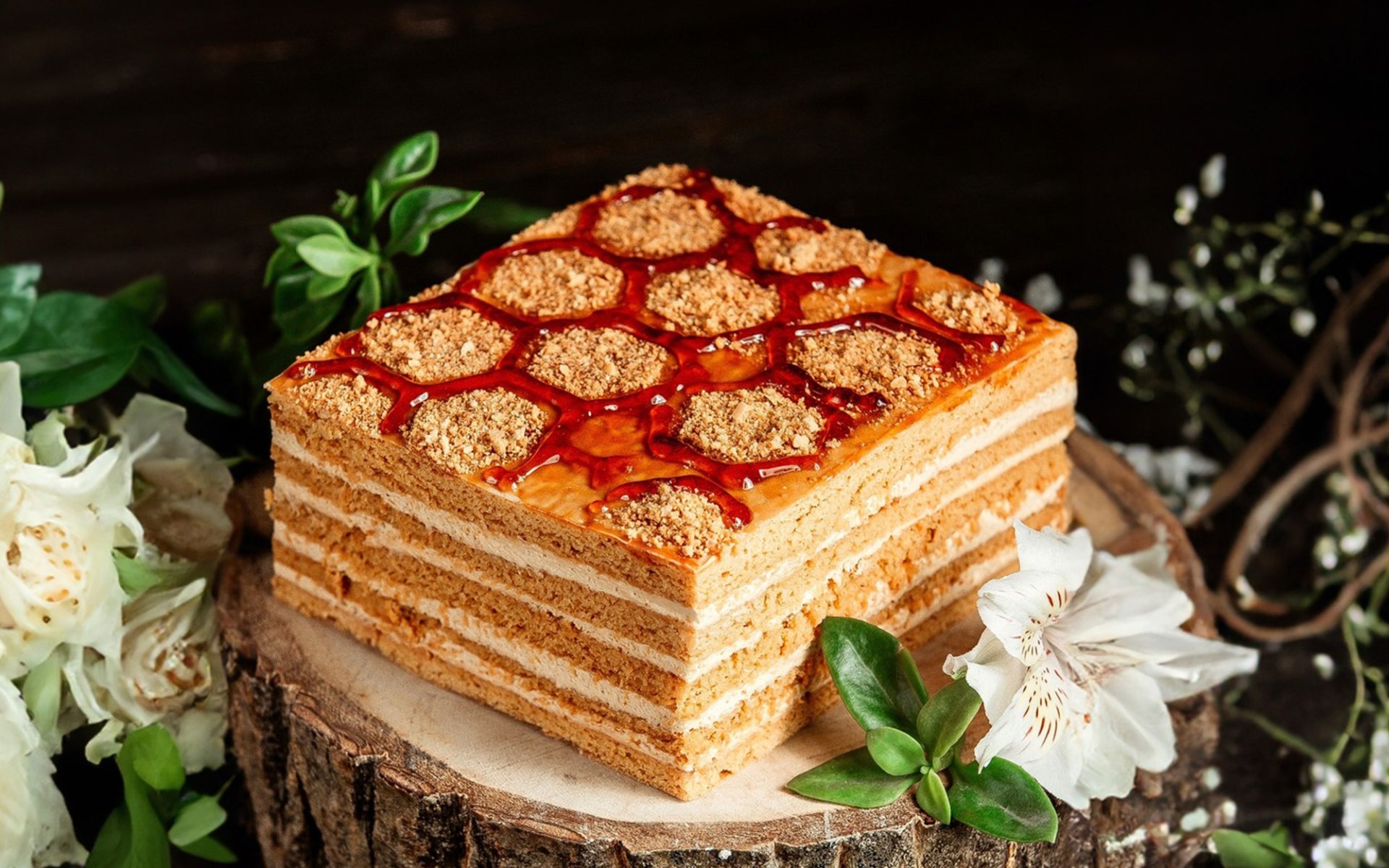Medovik

When asked about Russia's most famous dessert, most people will unhesitatingly answer "Medovik" (медови́к), or the Russian honey cake. In Russian culture, this cake is considered a traditional dessert that has enjoyed long-standing popularity since the Soviet era.
A Fascinating History: From Imperial Court to Popular Delight
The history of Medovik dates back to the early 19th century. It is said that this cake was created around 1820 by the new personal chef of Empress Elizabeth Alexeievna (Елизаве́та Алексе́евна), the consort of Tsar Alexander I (Александр Павлович) of Russia.
The story goes that the Empress disliked all foods made with honey. However, one day, the new personal chef created a honey-based dessert, unaware of the Empress's aversion. Previous chefs had been well aware of this rule and had never used honey in their culinary creations.
Yet, the story took an unexpected turn. When the Empress tasted the cake, she was immensely fond of it. This might have been because the cake didn't have an overtly strong honey aroma, which she disliked. In its preparation, honey is first caramelized with butter before being mixed with flour, resulting in a scent that is more akin to caramel than raw honey. This subtle aroma likely contributed to her liking the cake.
After finishing the dessert, the Empress inquired about its ingredients. Initially, the chef was hesitant to answer, fearing her displeasure. Nevertheless, he confessed and admitted that honey was the main ingredient. The Empress then smiled and immediately rewarded the chef. As a result, Medovik cake quickly became a fashionable dessert among the Russian nobility. Over time, its popularity spread among the common people, making that era a golden age for Medovik.
The Essence of Medovik: Layered Cake of Happiness
Medovik is a soft, fragrant, and delicately sweet cake, featuring thin layers interspersed with sour cream (or cream cheese) frosting, typically ranging from 6 to 12 layers. It's then decorated with crumbs made from various nuts, like walnuts, or crushed biscuits. The thin, moist cake layers are said to taste similar to soft caramel, offering a harmonious and complex flavor profile.
Beyond its culinary appeal, Medovik also holds significant symbolic importance in Russian culture. It is commonly served at celebrations, particularly weddings and birthdays. Because Medovik cake consists of multiple layers, it is believed that these layers represent "layers of happiness," giving the dessert a deeper meaning beyond just a sweet treat.
Global Popularity and Modern Adaptations
In recent years, Medovik cake has seen a surge in popularity, both within Russia and internationally. Various cultures have developed new adaptations of Medovik, introducing diverse flavors to suit global tastes. Many chefs now add their own creative touches to the recipe, ranging from incorporating exotic fruits to different forms of chocolate, or adjusting the type of cream used to create new dimensions. Even after many decades, this unique cake continues to captivate dessert lovers worldwide, remaining one of Russia's most iconic sweet delicacies.


